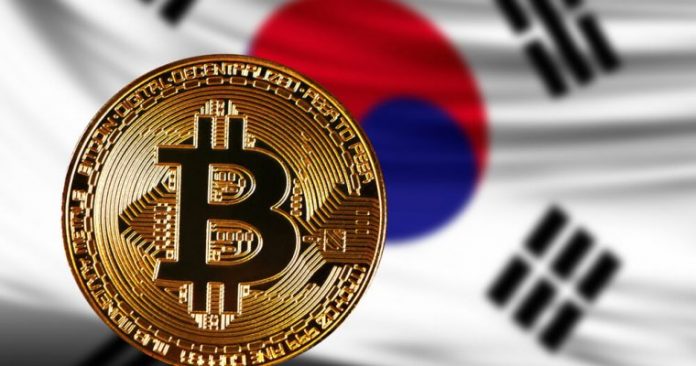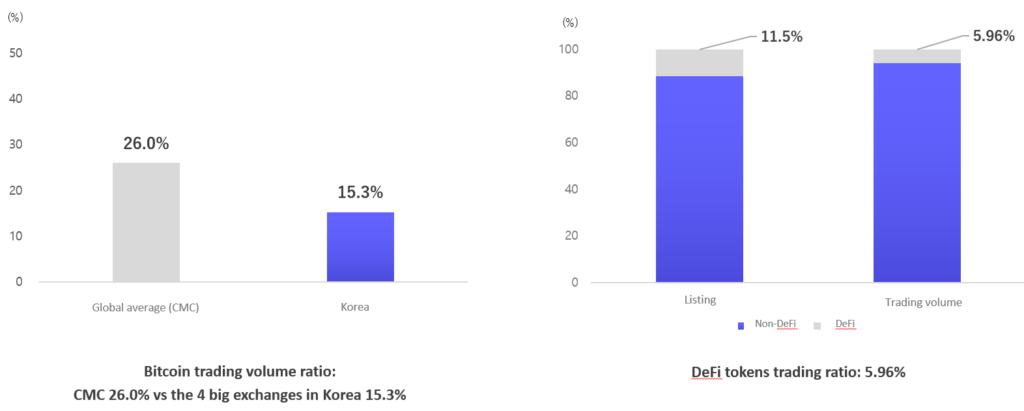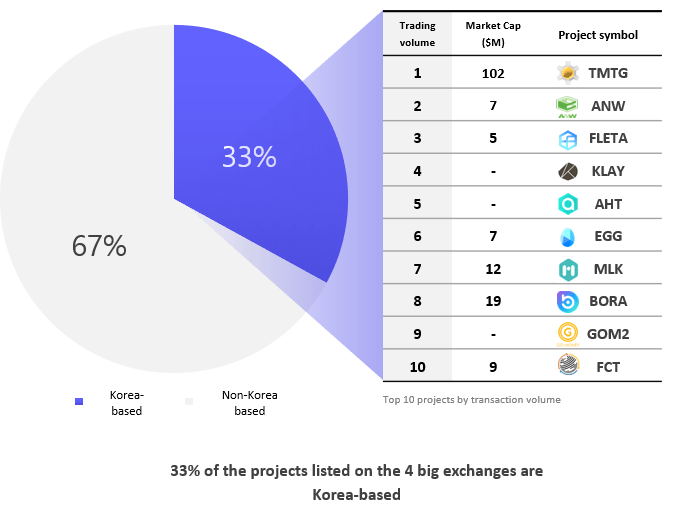
The most surprising detail from the report shows how traders on Korean exchanges heavily favor trading alts over Bitcoin or even DeFi coins. Only about 15% of the total trading volume at the 4 major exchanges was with Bitcoin, far below the global average slightly above 26%.
By the numbers, Korean exchanges appear to be lagging behind market changes in other respects, as well. Just a few short years ago, Korean exchanges Coinone, Korbit, Bithumb, and Upbit were all on the top-ten leader board for global crypto assets trading.
Between June and October of this year, however, total trading volume across the 4 major exchanges amounted to about $93 billion. Bithumb currently leads the 4 major exchanges globally at number 13 on trading volume rankings just behind Bithumb Global, which sits at number 12.

Furthermore, DeFi listings in Korea fell below global averages. Between June and October, only 11.5% of new listings were DeFi tokens, comprising just under 6% of total trade volume. Traders favored trading coins from Korea-based projects over global DeFi projects.
Considering the DeFi boom that occurred last summer and drove trading volumes on DEX, it seems the Korean exchanges have fallen far behind the global crypto market.
Crypto Adoption
South Korea appears to be among the front runners in crypto adoption despite the lagging trading volumes. Of 154 countries ranked in the Global Crypto Index from the report, South Korea came in at a very respectable 17th. Crypto adoption in clearly evident across South Korea. Just in the past few years, local payments solutions, a token issuance and donations platform, and various government-backed programs have launched to some success.
There are now murmurs from the Bank of Korea that a digital Korean Won CBDC could be tested in markets by next year.

South Korea came in a distant second behind China among East Asian countries’ crypto adoption. China came in first globally.
Presumably the positive outlook for the Korean market from Bithumb, Chainalysis, and Xangle officials came from several factors not including trading volume. Government regulatory infrastructure and a willingness of major companies to explore their options with crypto assets are the main factors.
More than 16% of the top 50 companies in South Korea are involved with crypto assets in some way. Some of them are on Klaytn’s governance council while others are developing their own solutions in-house.
Speaking on her positive outlook for the market, Kim Grauer, Head of Research for Chainalysis said, “Ranked at number 17 in our index and number 8 in terms of on-chain activity, South Korea has a strong professional market that we expect to continue to grow over the coming years.”
Brian Newar(2020.11.20) Strong outlook for the crypto market in South Korea
retrieved from https://thenews.asia/strong-outlook-for-the-crypto-market-in-south-korea/





![[November]Uptober No More](https://coinhubkorea.com/wp-content/uploads/2025/10/Whisk_d78880efb01a730907f4be201effefe1dr-1-100x70.jpeg)
